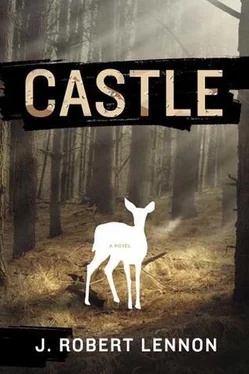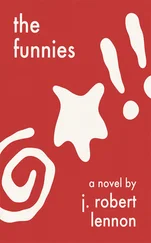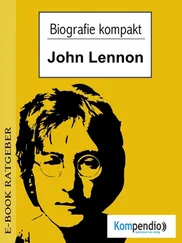Professor Bulgakov nodded, leaning forward. She was very serious, though I gathered that this was her general manner, and not a reaction to the subject at hand. She said, “My understanding is that, in the wake of his family’s deaths, Doctor Stiles gradually withdrew from the university community, stopped publishing his research, and became difficult to understand. He had been working on operant conditioning, following some of the work of B. F. Skinner, but his research became strange and his funding evaporated. He was retired early after an incident with a student, and he left academia and apparently moved away.”
She was an excellent speaker, curling her lips around each word as if she were tasting it. Her enunciation was precise. Clearly her late adoption of English had prevented her from taking it for granted; her speaking skills were a source of considerable pride.
“What kind of incident with a student?” I asked, trying not to appear too eager.
“A young man. He was a volunteer for one of Doctor Stiles’s studies, and not long after his visits to Doctor Stiles’s lab, he entered into a paranoid, delusional state and tried to kill another student. The young man later admitted that he had been taking LSD. But reporters also learned that he had been one of Doctor Stiles’s test subjects, and they seized upon this detail, which subsequently captured the public’s imagination. Once reporters realized what an eccentric Doctor Stiles was, they played up this angle, and he became known as a violent madman.”
I asked if his studies were, in fact, violent or cruel. The question seemed to make Professor Bulgakov uncomfortable. She let out a small grunt and adjusted her position in her seat. “Perhaps,” she said at last. “You have to remember what life was like during that era. The Holocaust was still recent history. The Vietnam War was under way. Experimentation with mind-altering drugs was a strong cultural theme. As far as I can tell, Doctor Stiles was working on depriving and confusing his subjects, removing them from their social context. He wanted to see how quickly a person could be broken down — how strong his personality actually was. I’m sure it will come as no surprise to you that many people can be broken down very quickly.”
There was a silence as I digested what she had said. She settled back into her chair. Finally I leaned forward, placing my fingers on the edge of her desk. “What do you mean by that, exactly?” I asked.
She arched an eyebrow. “Well, the human mind, in spite—”
“No — you said, ‘It will come as no surprise to you. ’”
She stared at me.
“Why should that come as no surprise to me, Professor Bulgakov?”
“I’m sorry,” she said. “I don’t understand.”
“I am wondering what you think you know about me that would make you believe that.”
She appeared puzzled for a moment, perhaps in earnest, perhaps not. I realized that I was testing her, to find out if she were testing me. Perhaps, on some level, every human interaction was a psychological experiment.
“All I meant,” she said slowly, “was that, in the wake of the sixties, and of our military adventures abroad, most intelligent people have absorbed the idea that none of us is ever very far from emotional collapse.” When I offered no reply, she went on. “Our personalities are complex, but the animal instincts they conceal are stronger, and not very far below the surface.” She met my stare and said, “Don’t you agree, Mr. Loesch?”
“Yes, I do,” I answered.
“You are dissatisfied with my explanation.”
“No, no,” I said. I must have appeared lost in thought, because I had been trying to figure out how Professor Bulgakov had learned my name. Had I introduced myself? Surely I had. But I couldn’t remember.
Suddenly it was I who felt uncomfortable. I pulled back from the desk, rubbed my hands together, and stood up to leave. “Well,” I said. “Thank you, Professor. You’ve been very helpful.”
Lydia Bulgakov appeared surprised at my sudden change in demeanor. “By all means,” she said, frowning.
I nodded once, then turned toward the door. As I was about to pass through it, she called out, “Mr. Loesch?”
“Yes?”
“Is everything all right? I hope I haven’t given you some wrong impression.”
“What kind of wrong impression?” I demanded.
She appeared to be about to answer, then let out breath and sank back into her chair.
“Never mind,” she said.
I gazed at her for a long moment, by the end of which, if I was not mistaken, the faintest hint of disquiet had begun to creep into her face. It was then that I left, striding back down the hall the way I had come.
When I reached the exit, I turned for one last look. She was there, standing outside her office door, one hand on the jamb, watching me go.
Before I returned to the house, I stopped at the sporting goods and hardware stores, to replace the items I had lost on the rock. Luckily, the arrogant sporting goods clerk was not there, and I was able to buy a new pack and climbing supplies without another confrontation. But Randall was indeed working at the hardware store, and once again it was his checkout line I found myself in, with my new hatchet and folding saw.
“Well, how are you doing today, Mr. Loesch?”
“Very well, thank you, Randall.” After a moment’s consideration, I added, “You may call me Eric.”
“All right then,” he replied, placing my purchases in a plastic sack. He told me to swipe my credit card, and then he said, “Good thing we’re being so friendly with each other, because there’s something I want to ask you.”
“What’s that?” The cash register printed a receipt, which he added to my bag.
“Your name came up when I was talking to Heph the other day. He was wondering how you were doing out there on the hill. And it occurred to me, maybe you’d want to come down to the Amvets in Milan with us for a drink or three. We have a regular Tuesday-night thing.”
For a moment, I was speechless. “That’s very kind of you,” I said at last.
He handed me my bag. “So we’ll see you tomorrow?”
That was not what I had meant, but I found myself agreeing. As I walked out the door, I wondered why. I did not want to socialize with Randall and Heph. I found Randall to be excessively assertive, even imperious; and Heph, though polite and amiable, hardly seemed interesting enough to be worth spending an evening with. This may sound rather stuck-up, but I am generally more than well enough occupied by my work, and do not require excessive social interaction.
Nevertheless, I had accepted the invitation. My susceptibility to social pressure embarrassed me. I sat behind the wheel for the second time that day, thinking of nothing, and it was only when someone pulled up beside me in the parking lot and peered at me through the window that I returned to myself and pulled away.
It was nearly evening now, so I stopped at a fast food restaurant and ate a cheeseburger in my car. My diet was poor, it was true, and my body was riddled with aches and pains. I had to get back onto a regimen. I wondered, not for the first time, what it would feel like to be old. Eventually, I supposed, no diet regime, no exercise regimen, would be able to obscure the passage of time. A day would come when I would not be able to repair a roof, or climb up the side of a mountain. And then climbing a ladder would become impossible, and then sanding a floor. And soon I would be helpless, and I would die. I found it difficult, however, to envision the circumstances of my death. Somehow, I could not imagine myself experiencing the kind every American hopes for — lying in bed, surrounded by family and friends, and slowly fading away into eternal rest. Indeed, the prospect seemed singularly depressing. Perhaps, if it ever became obvious that my death was imminent, and I still possessed the strength to control it, I should end my own life.
Читать дальше











